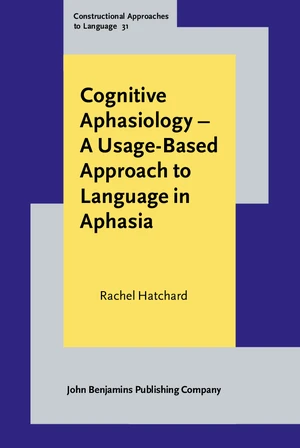Aphasia is the most common acquired language disorder in adults, resulting from brain damage, usually stroke. This book firstly explains how aphasia research and clinical practice remain heavily influenced by rule-based, generative theory, and summarizes key shortcomings with this approach. Crucially, it demonstrates how an alternative â the constructivist, usage-based approach â can provide a more plausible theoretical perspective for characterizing language in aphasia. After detailing rigorous transcription and segmentation methods, it presents constructivist, usage-based analyses of spontaneous speech from people with various aphasia âtypesâ, challenging a clear-cut distinction between lexis and grammar, emphasizing the need to consider whole-form storage and frequency effects beyond single words, and indicating that individuals fall along a continuum of spoken language capability rather than differing categorically by aphasia âtypeâ. It provides original insight into aphasia â with wide-reaching implications for clinical practice â, while equally highlighting how the study of aphasia is important for the development of Cognitive Linguistics.
Price history
▲32.67%
Jan 26, 2022
€144.37
▼-0.54%
Jan 24, 2022
€108.82
▼-0.09%
Jan 18, 2022
€109.41
▲0.53%
Jan 17, 2022
€109.50
▼-0.05%
Jan 11, 2022
€108.92
▲0.25%
Jan 10, 2022
€108.98
▲0.9%
Jan 4, 2022
€108.71
▲1.22%
Dec 28, 2021
€107.74
▼-0.13%
Dec 21, 2021
€106.44
▼-0.15%
Dec 14, 2021
€106.58

